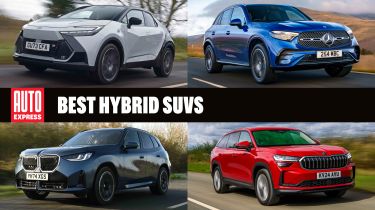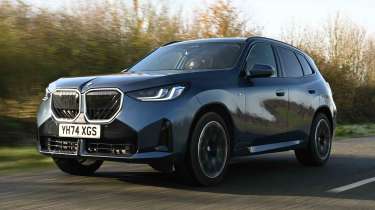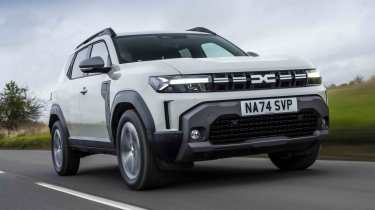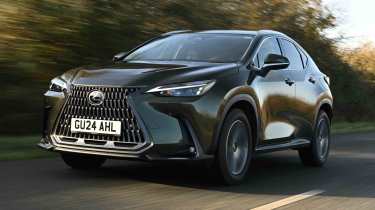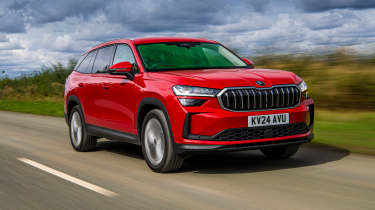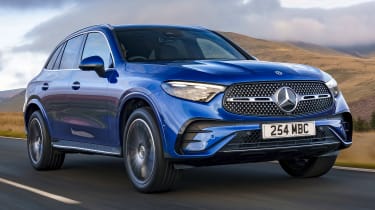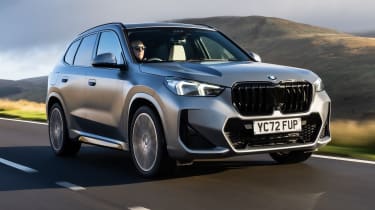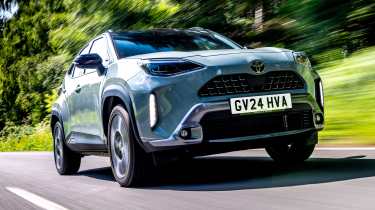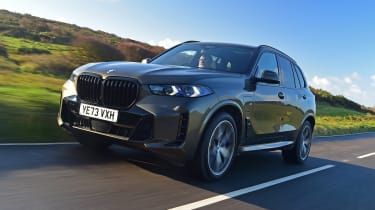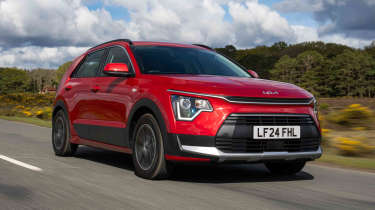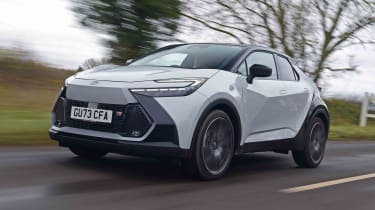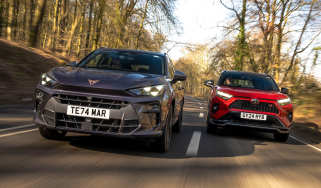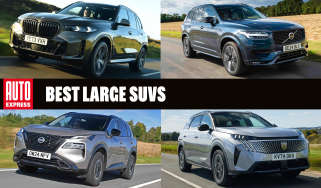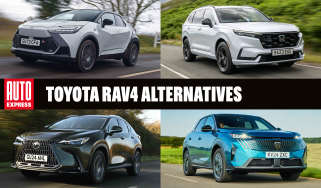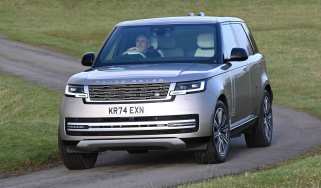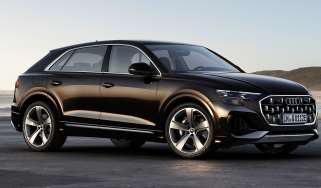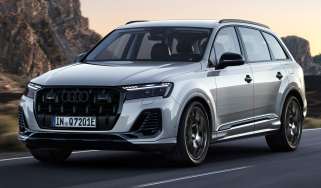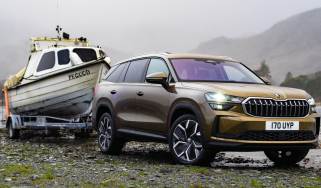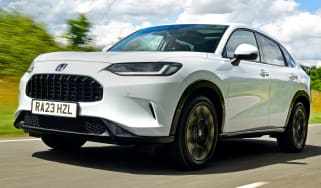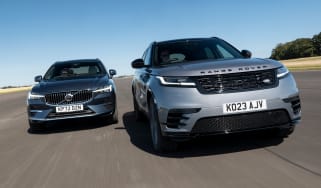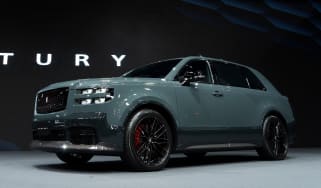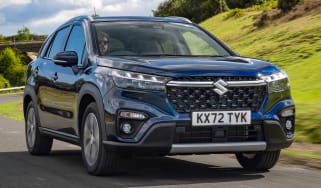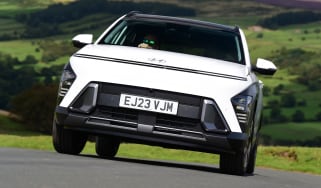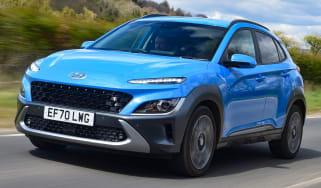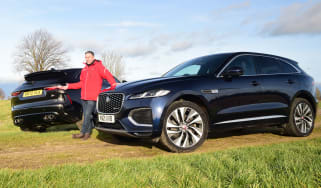Best hybrid SUVs to buy 2025
Plenty of SUVs now come with hybrid power, and we’ve picked out the very best buys on today’s market
Not so long ago, if you wanted an SUV, you had two choices: petrol or diesel. Now, things aren’t so simple. Hybrid SUVs have taken over, with everything from compact city crossovers to luxury seven-seaters offering some form of electrification. The idea is simple - use an electric motor to boost efficiency, cut emissions, and in some cases, even improve performance. But not all hybrid SUVs work in the same way, and knowing the difference can make or break your buying decision.
Plug-in hybrids (PHEVs) can run on electric power alone for short trips, making them great for cutting fuel bills - provided you charge them regularly. Self-charging hybrids, on the other hand, don’t need plugging in but still offer better efficiency than traditional petrol models. Then there are mild hybrids, which use a small electric boost to improve fuel economy but don’t provide the same level of savings as full hybrids or PHEVs.
The best hybrid SUVs blend this efficiency with the space, practicality and technology you expect from a modern SUV. Whether you need something small and city-friendly, a capable family hauler, or a high-performance model with serious power, there’s a hybrid SUV to match.
Our expert road testers have driven them all, assessing real-world efficiency, practicality, and driving dynamics to separate the best from the rest. Picking between a plug-in, self-charging, or mild-hybrid set-up isn’t just about efficiency - it’s also about how the car fits into your daily life, whether that means maximising electric running, cutting fuel costs, or simply enjoying a smoother drive.
Here we list the top 10 best hybrid SUVs that offer the perfect balance of power, refinement, and fuel-saving technology.
1. BMW X3 30e xDrive
- Prices from £58,000
- Best driving experience
| Pros | Cons |
|
|
|
|
|
|
The BMW X3 30e xDrive is the type of car that doesn’t shout about itself - it just quietly gets on with being brilliant. The plug-in hybrid set-up here combines a 2.0-litre petrol engine and an electric motor to deliver 295bhp, hitting 0-62mph in 6.1 seconds, so this X3 is no slouch when you want to put your foot down. Plus, it’ll happily cruise on electric power for up to a stated 56 miles, making it perfect for short trips without burning a drop of petrol.
The ride is comfortable, and while the handling is more sensible than thrilling, the steering still encourages you to push on a bit. Inside, the tech is spot on, but the materials don’t quite match the premium price tag. The boot capacity is a generous 450 litres, which is decent, though not the largest in its class. Perhaps one of the biggest question marks over the latest X3 is how it looks; its bold front end with that huge grille is something you will either love or hate. Still, the X3 30e feels effortless in every way, making it one of the most complete options out there.
2. Dacia Duster
- Prices from £24,350
| Pros | Cons |
|
|
|
|
|
|
The Dacia Duster Hybrid offers a straightforward approach to hybrid motoring, delivering practicality, space and efficiency. With 138bhp from its 1.6-litre petrol engine and electric motor, it hits 0-62mph in 10.8 seconds - nothing thrilling, but it gets you where you need to go without fuss. Efficiency is solid too, with a claimed 55.3mpg, so you won’t be constantly hunting for the nearest petrol station.
Inside, the Duster feels roomy, offering 430 litres of boot space - though you’ll lose a little compared to the non-hybrid models. The interior is all about functionality, with hard-wearing materials that might not win any awards for style, but are built to last. While there’s a bit of wind noise at motorway speeds, it remains comfortable overall. The three-star Euro NCAP rating isn’t the best, but there’s enough safety tech to keep most drivers at ease. For those after a no-nonsense hybrid SUV, the Duster delivers exactly that.
3. Lexus NX450h+
- Prices from £55,000
| Pros | Cons |
|
|
|
|
|
|
Toyota was a pioneer of hybrid technology, and its luxury sub-brand Lexus shares this wealth of knowledge. The plug-in hybrid Lexus NX450h+ is a great premium all-rounder, boasting a premium interior that’s ergonomic and practical, but its powertrain is the real highlight.
The 2.5-litre four-cylinder petrol-electric plug-in hybrid powertrain is the same as you’ll find in the Toyota RAV4, but Lexus has worked on making the NX even more refined. The hybrid system is particularly clever because once the 18.1kWh battery is depleted (over 40 miles of pure-electric running is possible) it reverts to acting like a normal hybrid so you still have some sort of electrical assistance.
The NX is also much more refined and comfortable than its Toyota cousin, and it rides better without sacrificing body control.
4. Skoda Kodiaq
- Prices from £41,935
| Pros | Cons |
|
|
|
|
|
|
If you want an SUV that just gets on with the job, the Skoda Kodiaq plug-in hybrid is hard to ignore. It’s not flashy or dramatic, but it doesn’t need to be. With a combined 210bhp from its 1.5-litre petrol engine and electric motor, it feels brisk enough, hitting 0-62mph in 8.4 seconds. You also get a claimed 75 miles of electric range from a single charge.
Inside, there’s space in abundance, with clever touches that make family life simpler. The boot capacity is a huge 745 litres, and there are plenty of thoughtful storage options scattered around the cabin. It feels impressively upmarket for the price, although the rotary dials could feel more solid. It’s not the most eye-catching SUV, and on big wheels, the ride can be a bit uneasy, but that misses the point. The Kodiaq is all about comfort, practicality and making everyday driving easy - and it does exactly that.
5. Mercedes GLC 300 e
- Prices from £60,000
| Pros | Cons |
|
|
|
|
|
|
The GLC offers all of the luxury, build quality and technology that you’d expect from a Mercedes — along with the badge appeal — and the 300 e combines all this with a plug-in hybrid powertrain that claims an official fuel economy figure up to 565mpg.
Of course, it’s going to be a considerable challenge to achieve this figure without extremely diligent charging – and very few long journeys – but the Merc’s fully electric range of 84 miles will help a great deal towards preserving every last drop of petrol. This is all very useful in driving down CO2 emissions, too.
It all sounds – and is – very promising. The only thing that prevents the GLC from moving further up this list is its lacklustre driving experience.
6. BMW X1 xDrive30e
- Prices from £47,000
| Pros | Cons |
|
|
|
|
|
|
The BMW X1 has long been one of the best-driving small SUVs you can buy, and the latest car continues this legacy. The plug-in hybrid xDrive30e delivers plenty of efficiency to go with its performance, too.
As with many plug-in hybrids, we’re sceptical of the official fuel economy figures – BMW claims over 300mpg for the X1 – which are almost impossible to match in everyday driving. But CO2 emissions of 16-20g/km and the ability to travel up to 52 miles on battery power alone are useful figures for company car buyers.
7. Toyota Yaris Cross
- Prices from £25,500
| Pros | Cons |
|
|
|
|
|
|
We think the current Yaris is a fantastic supermini, so it should come as little surprise that its SUV sibling, the Toyota Yaris Cross, is also a great option. Like the Yaris, the Cross uses a 114bhp 1.5-litre three-cylinder petrol hybrid, mated to a CVT automatic transmission.
It might be a bit heavier than the Yaris, but the Yaris Cross can still comfortably return over 60mpg. Unsurprisingly it’s not very quick, but this small SUV certainly feels solid enough from behind the wheel, and the level of refinement is good for a car of this size.
Standard equipment is pretty generous, too. The entry-level Icon trim comes with 16-inch alloy wheels, an eight-inch touchscreen, Apple CarPlay and Android Auto compatibility, a reversing camera, adaptive cruise control and steering assist.
Latest Toyota Yaris Cross deals
8. BMW X5 xDrive50e
- Prices from £81,000
| Pros | Cons |
|
|
|
|
|
|
The BMW X5 xDrive50e fits the template of the big hybrid SUV perfectly. It combines a smooth 3.0-litre six-cylinder petrol engine with a 25.7kWh battery, and this combination allows it to cover up to 70 miles on electric power.
Having such a large battery means some buyers will barely ever use the engine, but the two power sources are well integrated, adding to the X5’s air of luxury. The six-cylinder engine is refined and quiet at speed, but still delivers strong performance in tandem with the electric motor – BMW says 0-62mph takes 4.8 seconds. Given its size, the X5 isn’t the most agile PHEV on sale, but the steering is sharp and the ride is smooth when you take it easy.
9. Kia Niro
- Prices from £31,000
| Pros | Cons |
|
|
|
|
|
|
The Kia Niro is a regular sight on our lists of best hybrid cars, thanks to its frugality, practicality and general capability. The Niro’s platform has to cater for hybrid, plug-in hybrid and fully electric power, but it isn’t compromised by this. This Kia remains a versatile family car regardless of your chosen powertrain.
The Niro Hybrid claims up to 64.2mpg on the WLTP combined cycle with CO2 emissions of 100g/km. The PHEV, meanwhile, can apparently reach 353.1mpg while emitting just 23g/km of CO2. It can also cover up to 40 miles on purely electric power.
10. Toyota C-HR
- Prices from £31,500
| Pros | Cons |
|
|
|
|
|
|
While small crossovers continue to prove exceptionally popular, few have the style and head-turning ability of the Toyota C-HR. Just like its predecessor, this striking little SUV won’t be to everyone’s taste, but beneath the bold body is a capable family car.
Toyota was a pioneer in hybrid tech, and the C-HR is predictably refined as a result of this expertise. While it’s not necessarily a car for keen drivers, its relatively small size and impressive economy make it a great everyday option, and a solid first step into hybrid ownership.
This rakish styling means the C-HR is a little less practical than the Kia Niro, but there’s plenty of passenger space throughout its modern and upmarket cabin.
The best hybrid SUVs to buy now
| Rank | Car | Overall rating | MPG, emissions & running costs rating | Price from |
| 1 | BMW X3 30e xDrive | 4.0 | 4.0 | £58,000 |
| 2 | Dacia Duster | 4.5 | 4.7 | £24,350 |
| 3 | Lexus NX450h+ | 4.0 | 4.5 | £55,000 |
| 4 | Skoda Kodiaq | 4.5 | 4.3 | £41,935 |
| 5 | Mercedes GLC 300 e | 4.0 | 4.4 | £60,000 |
| 6 | BMW X1 xDrive30e | 4.0 | 4.0 | £47,000 |
| 7 | Toyota Yaris Cross | 4.0 | 4.4 | £25,500 |
| 8 | BMW X5 xDrive50e | 4.5 | 4.0 | £81,000 |
| 9 | Kia Niro | 4.0 | 4.0 | £31,000 |
| 10 | Toyota C-HR | 4.0 | 4.5 | £31,500 |
How we choose the best hybrid SUVs
Choosing the best hybrid SUVs isn’t just about comparing fuel economy figures or electric range - it’s also about how well these vehicles perform in the real world. With electrification now available in everything from compact crossovers to full-size family haulers, finding the top options requires a thorough evaluation of their running costs, practicality and driving experience. That’s where our expert road testers come in, putting each model through its paces to determine which ones truly stand out.
Fuel-saving technology is a crucial part of any hybrid SUV, but not all systems are created equal. PHEVs need to deliver a meaningful electric range when charged, while self-charging set-ups should provide better mileage without needing to be plugged in. We assess how smoothly each system operates, how well it balances petrol and battery power, and whether regenerative braking effectively recovers energy - all of which impact real-world affordability.
Everyday usability is just as important. SUVs are built for space and versatility, but some hybrids lose boot capacity or passenger room because of the battery’s location. We test how well each model accommodates occupants and luggage, whether the rear seats are comfortable for long trips, and how easy it is to fit child seats or load bulky items. A great hybrid SUV should be just as functional as its petrol or diesel equivalent.
Ride and handling also play a big role. Hybrids can be heavier than an equivalent non-hybrid model because of their battery packs, and this can affect agility and comfort. Our testers evaluate how each SUV performs on different types of roads, from tight city streets to motorways and winding lanes. We look at acceleration, braking response, and how well the powertrain integrates with the overall driving dynamics. A top model should feel smooth, responsive, and effortless to drive.
Once we’ve gathered all this information, we compare every contender to identify the best hybrid SUVs on the market. Only the ones that excel in economy, practicality, and overall performance make the cut. Whether you’re after a small, city-friendly hybrid or a spacious family SUV, our expert testing ensures you’re choosing from the very best.
Buy a car with Auto Express. Our nationwide dealer network has some fantastic cars on offer right now with new, used and leasing deals to choose from...

